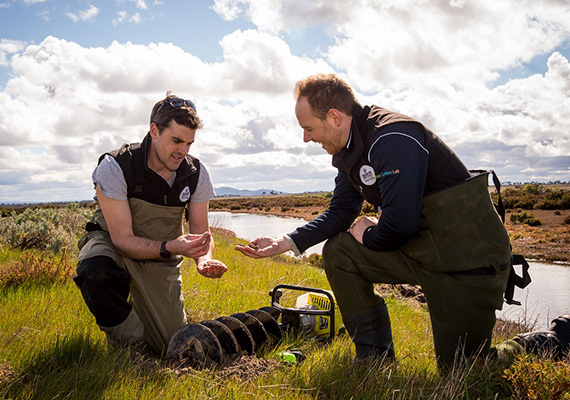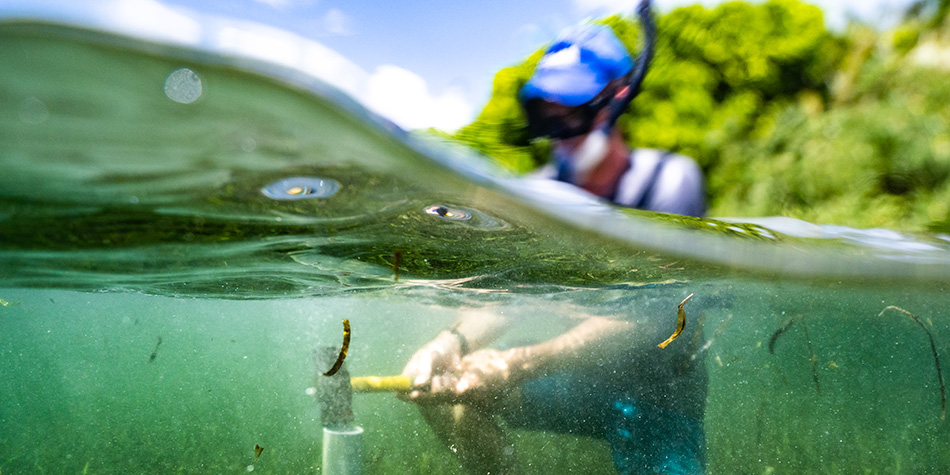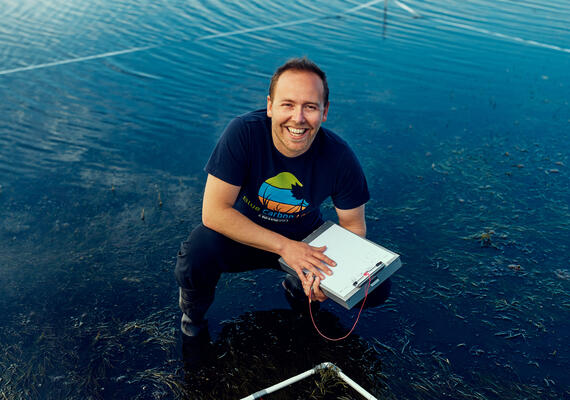'My research looks at how the incredibly small things in coastal environments, like microbes and chemical compounds, affect plants, ecosystems and global-scale processes like climate change,' Dr Trevathan-Tackett says.
'His donations co-funded my first fellowship, working on a marine biosecurity database for Australia and launching the global TeaComposition H2O initiative. I have since been awarded two other prestigious fellowships.'
'The TeaComposition H2O initiative is a global analysis of how well different wetlands store carbon. With the help of citizen scientists, tens of thousands of teabags (donated by Lipton) are being buried in wetlands so that we can determine how carbon breakdown occurs in these environments.'
The teabags offer a standard measure of decomposition that can be used to compare wetlands. Fast decay of the tea inside the bag means more carbon is being released into the atmosphere. The bags are dug up and measured at regular intervals over a three-year period.
'The main goals are to track the biomass and carbon loss during decomposition and analyse the microbial communities driving the decomposition process. We hope to identify the wetlands that are better at capturing and storing carbon so that we can protect or restore them,' Dr Trevathan-Tackett says.



